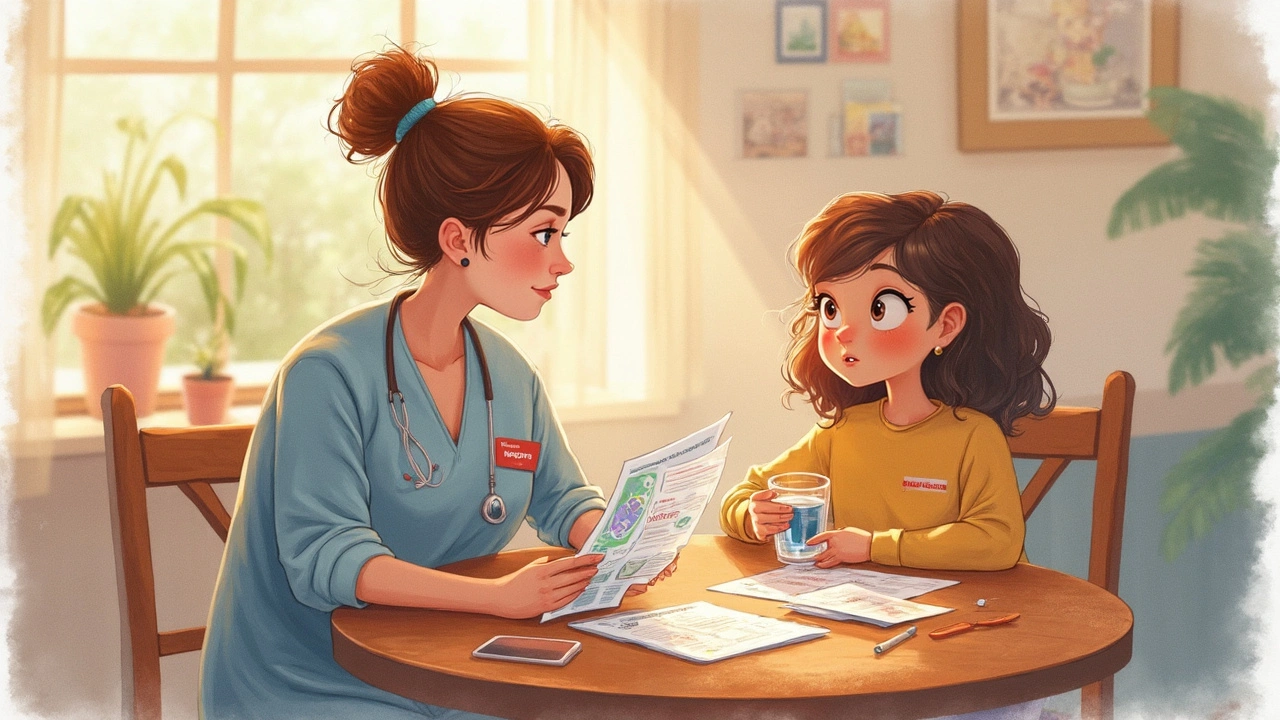Being a teen means juggling classes, sports, social life—and sometimes medications. You or a teen you care about may need prescriptions, supplements, or mental health meds. This page gives clear, practical tips so treatments work and risks stay low.
Start by knowing what each medicine does. Ask the prescriber: why this drug, how long, and what to expect. Write down the exact dose and the time to take it. If you notice new symptoms—dizziness, rash, mood changes—tell a parent or doctor right away. Side effects can be mild or a sign to change treatment.
Keep meds stored safely. Use a high shelf or locked box if younger siblings are around. Don’t share prescription drugs—even if a friend says theirs helped. What helps one person can harm another. Over-the-counter painkillers are useful, but follow the label and avoid mixing with alcohol or other meds.
Keep a current list of all medicines and supplements. Include doses and why you take them. Read labels and patient leaflets. Check for interactions—pharmacists can help. Carry a note in your phone with emergency contacts and allergies. If you miss a dose, ask your pharmacist if you should skip or take it as soon as you remember.
For mental health meds like antidepressants or mood stabilizers, be especially observant. These medicines can take weeks to work and sometimes change sleep, appetite, or emotions. Keep regular follow-ups with your prescriber. Never stop a psychiatric drug suddenly; that can cause withdrawal or relapse.
Online pharmacies can save time and money, but choose carefully. Look for a real pharmacy address and a licensed pharmacist you can contact. A trustworthy site will ask for a valid prescription when required. Beware of sites selling controlled drugs without prescriptions or offering “miracle” cures.
Read reviews and check independent pharmacy directories. Use secure payment methods and protect your passwords. If something feels off—prices way too low, no phone number—walk away. For privacy, check the site’s policy on data and discreet packaging options if you need them.
Vaccines and routine checks matter — keep immunizations up to date and attend yearly physicals. If a teen uses supplements for sports or muscle gain, check ingredients; many contain stimulants or hidden steroids. For acne meds like isotretinoin, follow strict monitoring and pregnancy prevention rules; don't try online shortcuts. When in doubt about an allergic reaction, high fever, fainting, severe breathing trouble, or thoughts of self-harm, go to the ER or call emergency services immediately. Keep records of prescriptions and any tests; having that history helps new doctors pick safe, effective treatments fast.
You don't have to manage this all alone.

Solifenacin, a drug mainly used for adult overactive bladder, is sometimes given to children and teens. This article breaks down how safe and effective solifenacin is for younger patients, what side effects families should watch for, and which situations make it a good option. Real-world advice, medical facts, and guidance for caregivers make this a must-read for anyone dealing with pediatric bladder problems.
Everything you need to know about Clozaril (clozapine): how it works, who takes it, medical facts, tips, side effects, and real-life advice for families.
Vaccine generics don't exist like drug generics-complex manufacturing, supply chains, and profit-driven systems keep low-income countries dependent on imports. Here's why global vaccine access remains unequal.
Discover how support groups boost emotional health, practical coping, and quality of life for relapsing‑remitting disease patients, with tips on finding the right community.
Learn how to purchase cheap generic amoxicillin online safely. Get legal tips, pharmacy comparisons, ordering steps, and money‑saving hacks in one concise guide.
Generic drugs are just as safe and effective as brand-name drugs for most people, backed by decades of clinical evidence. Learn when they're the best choice-and when to stick with the brand.